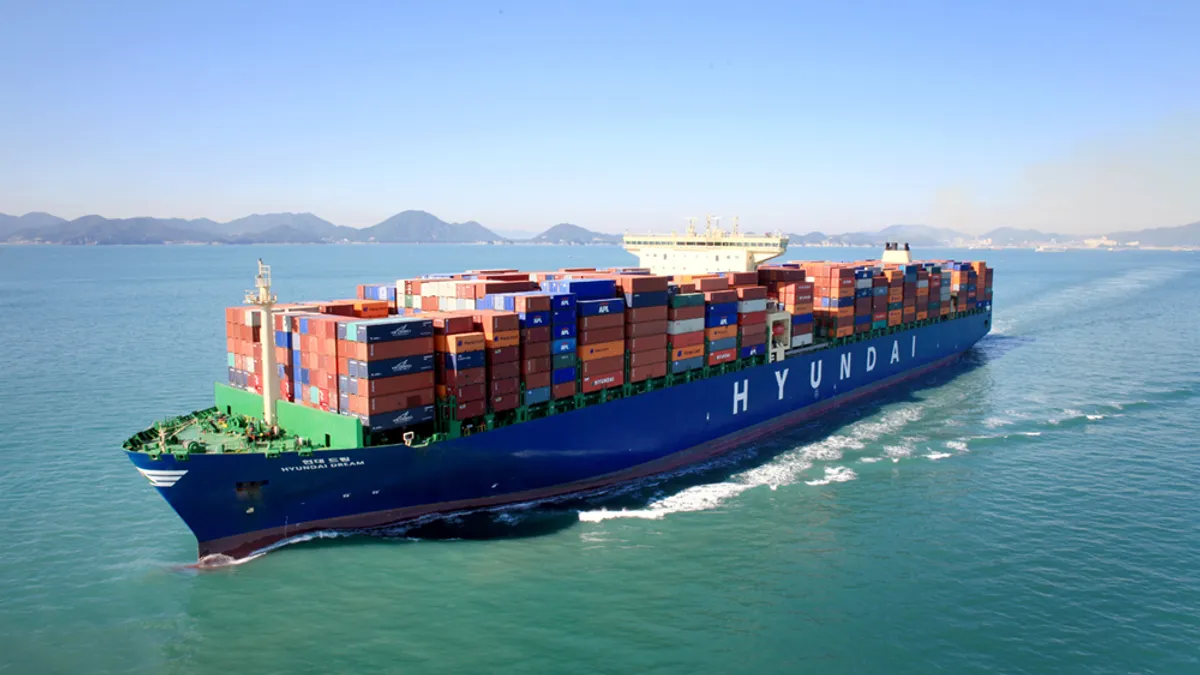Dive Brief:
- HMM will begin posting offers to fill slots on its Transpacific Westbound trade via the New York Shipping Exchange (NYSHEX) on August 6, 2018.
- NYSHEX is a digital marketplace for ocean shipping, which offers forward contracts guaranteeing space and equipment up to six months in advance with the goal of solving the industry's booking cancellation / cargo rollover problem with penalties for broken arrangements.
- HMM now joins Maersk Line, Hapag-Lloyd, CMA CGM and the merging COSCO and OOCL on the exchange. MOL was previously said to be on the list, but it has since been dropped from mentions on NYSHEX press releases.
@NYSHEX CEO explains the cargo rollover problem with marbles at #TPM2018 pic.twitter.com/BLKu3HJXEn
— Edwin Lopez (@EdwinLopezT37) March 7, 2018
Dive Insight:
Poor schedule reliability and delayed bookings lead to a lack of trust between shippers and carriers. As NYSHEX CEO Gordon Downes explained at TPM 2018, the cargo rollover problem is a symptom of that lack of trust. The cure, he said, is a contract where shippers can be guaranteed slots and carriers can be guaranteed cargo in a bidding system, like NYSHEX.
NYSHEX says it has a 99.8% fulfillment rate so far on its enforceable contracts and represents 52% of global capacity via its member carriers.
To date, however, the startup is only operating on Transpacific routes. Its membership reflects those trade lanes: CMA CGM's purchase of Neptune Orient Lines, parent of U.S.- and Singapore-based APL, in 2016 boosted its Transpacific presence; Maersk Line and Hapag-Lloyd are historically strong in the Americas; and COSCO is the official behemoth in China after its purchases of both China Shipping and OOCL.
HMM, seen as the more competitive successor to Hanjin Shipping in Korea after the world's sixth-largest carrier went bankrupt, was a natural fit to join the Transpacific marketplace.
NYSHEX, which only launched its pilot in March 2018, is a bit of an industry darling given its quick fundraising and support from major ocean carriers.
As the startup expands to other routes, and if its pilot proves successful, it will be able to tap into that global capacity its carriers boast and likely lure the remaining shipping lines — such as MSC or independent carriers like ZIM — directly into its marketplace.















